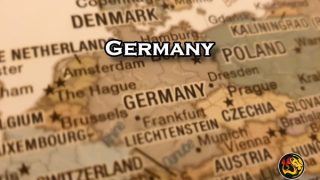By Stefan J. Bos, Chief International Correspondent Worthy News
CHISINAU/BUDAPEST (Worthy News) – German Chancellor Olaf Scholz said Wednesday that Ukraine had not informed Berlin about its August 6 shock incursion into Russia, and he defended his government’s decision to reduce military support for Kyiv by billions of euros.
Scholz spoke after talks with Moldovan President Maia Sandu in Chisinau, Moldova’s capital, amid concerns that Moscow’s invasion of Ukraine will spread to other countries, including Moldova.
Despite these concerns, he defended his three-way coalition’s decision to halve its aid next year to roughly 4 billion euros (about $4.5 billion), betting the shortfall will be made up by a Group of Seven (G7) plan to loan Ukraine $50 billion.
He said that despite less support from Germany, Europe’s largest economy, Ukraine could still succeed in ending the Russian offensive.
Russia has vowed to repel the Ukrainian incursion into its territory.
“Ukraine has prepared its military operation in the Kursk region very secretly and without feedback, which is certainly due to the situation,” Scholz said. “This is a very limited operation in terms of space and probably also in terms of time.”
FIRST LEADER
Scholz, the first German leader to arrive in Moldova on a bilateral working visit in the last 12 years, also pledged support for Moldova, one of Europe’s poorest nations, to join the European Union.
Yet, concerns remain about alleged Russian meddling in the October 20 presidential vote and the referendum on joining the EU that day.
“As Moldova has turned to the West following Russia’s all-out invasion of Ukraine, it has also toughened its approach toward two regions. [They are] breakaway Transnistria [with 1,500 Russian troops] and autonomous Gagauzia – that have courted Russian support,” noted the International Crisis Group (ICG).
Sandwiched between Ukraine and Romania, Moscow regards Moldova as strategically important, and Worthy News was established.
“With a presidential election and a referendum on EU membership approaching, Moldova’s divisions have deepened amid Russian meddling,” the ICG stressed.
“Russia is interfering in the pre-vote process and fanning internal discord, as it seeks to foil Moldova’s EU aspirations and destabilize its politics to recapture lost influence,” the group added in an assessment obtained by Worthy News.
The ICG warned, “Failure to address these issues could have implications for Moldova’s future stability.”
Copyright 1999-2024 Worthy News. This article was originally published on Worthy News and was reproduced with permission.
The following code is how the above article is generated with the Worthy Suite WordPress Plugin.
[worthy_plugins_news_story_body]This is how you display a story with an image.
German Chancellor Defends Less Support For Ukraine

By Stefan J. Bos, Chief International Correspondent Worthy News
CHISINAU/BUDAPEST (Worthy News) – German Chancellor Olaf Scholz said Wednesday that Ukraine had not informed Berlin about its August 6 shock incursion into Russia, and he defended his government’s decision to reduce military support for Kyiv by billions of euros.
Scholz spoke after talks with Moldovan President Maia Sandu in Chisinau, Moldova’s capital, amid concerns that Moscow’s invasion of Ukraine will spread to other countries, including Moldova.
Despite these concerns, he defended his three-way coalition’s decision to halve its aid next year to roughly 4 billion euros (about $4.5 billion), betting the shortfall will be made up by a Group of Seven (G7) plan to loan Ukraine $50 billion.
He said that despite less support from Germany, Europe’s largest economy, Ukraine could still succeed in ending the Russian offensive.
Russia has vowed to repel the Ukrainian incursion into its territory.
“Ukraine has prepared its military operation in the Kursk region very secretly and without feedback, which is certainly due to the situation,” Scholz said. “This is a very limited operation in terms of space and probably also in terms of time.”
FIRST LEADER
Scholz, the first German leader to arrive in Moldova on a bilateral working visit in the last 12 years, also pledged support for Moldova, one of Europe’s poorest nations, to join the European Union.
Yet, concerns remain about alleged Russian meddling in the October 20 presidential vote and the referendum on joining the EU that day.
“As Moldova has turned to the West following Russia’s all-out invasion of Ukraine, it has also toughened its approach toward two regions. [They are] breakaway Transnistria [with 1,500 Russian troops] and autonomous Gagauzia – that have courted Russian support,” noted the International Crisis Group (ICG).
Sandwiched between Ukraine and Romania, Moscow regards Moldova as strategically important, and Worthy News was established.
“With a presidential election and a referendum on EU membership approaching, Moldova’s divisions have deepened amid Russian meddling,” the ICG stressed.
“Russia is interfering in the pre-vote process and fanning internal discord, as it seeks to foil Moldova’s EU aspirations and destabilize its politics to recapture lost influence,” the group added in an assessment obtained by Worthy News.
The ICG warned, “Failure to address these issues could have implications for Moldova’s future stability.”
Copyright 1999-2024 Worthy News. This article was originally published on Worthy News and was reproduced with permission.
[worthy_plugins_news_story_title]
<div style="text-align:right; padding:0px 0px 10px 15px; float:right; width:300px;"><img src="[worthy_plugins_news_story_image name=sm_medium]" alt="" /></div>[worthy_plugins_news_story_body]